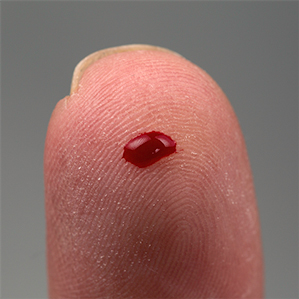Theranos Gets (Another) Bad Lab Report
Updated January 27, 2016, at 6:01 p.m.

The Wall Street Journal has more bad news about Theranos, the blood-testing startup that was once a Silicon Valley darling valued at $9 billion. The Journal reported today that laboratory violations at Theranos would put patients in “immediate jeopardy,” and disqualify the company from participating in the Medicare program.
On Monday, federal health inspectors found “serious deficiencies” at a Theranos lab. It’s not clear what those problems are, though the Journal says the issues are “far more severe” than ones detected in an inspection of the same laboratory in 2013. This comes after the Journal reported in October that Theranos was not yet able—as it claimed—to perform a wide range of lab tests on a pinprick-sized sample of blood.
Because Theranos has raised more than $400 million and made headlines for its eye-popping valuation, its stumbles have been a source of schadenfreude in Silicon Valley. But it would be a shame if its struggles obscured the fact that blood tests in general are justifiably hot right now: they can be used to glean remarkable new insights, even about tumors or other problems that show up only in minuscule amounts. That development won’t be derailed even if Theranos falls apart.
(Source: Wall Street Journal)
Keep Reading
Most Popular
Large language models can do jaw-dropping things. But nobody knows exactly why.
And that's a problem. Figuring it out is one of the biggest scientific puzzles of our time and a crucial step towards controlling more powerful future models.
The problem with plug-in hybrids? Their drivers.
Plug-in hybrids are often sold as a transition to EVs, but new data from Europe shows we’re still underestimating the emissions they produce.
Google DeepMind’s new generative model makes Super Mario–like games from scratch
Genie learns how to control games by watching hours and hours of video. It could help train next-gen robots too.
How scientists traced a mysterious covid case back to six toilets
When wastewater surveillance turns into a hunt for a single infected individual, the ethics get tricky.
Stay connected
Get the latest updates from
MIT Technology Review
Discover special offers, top stories, upcoming events, and more.